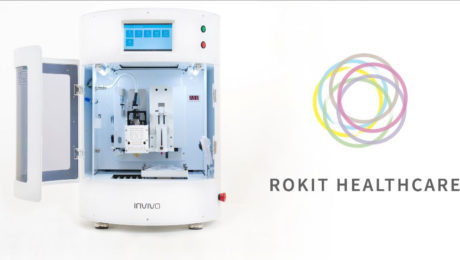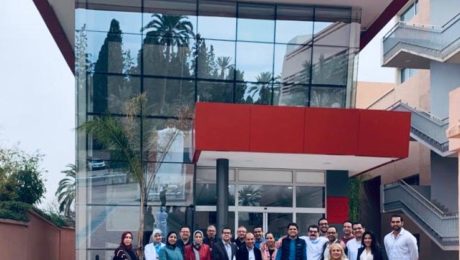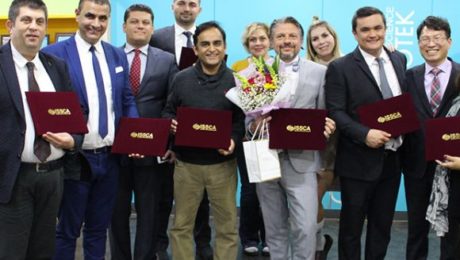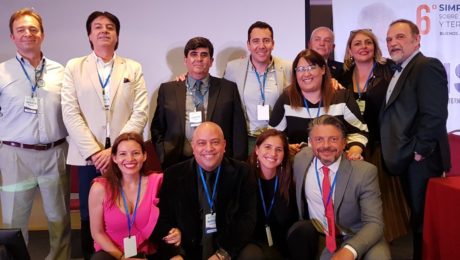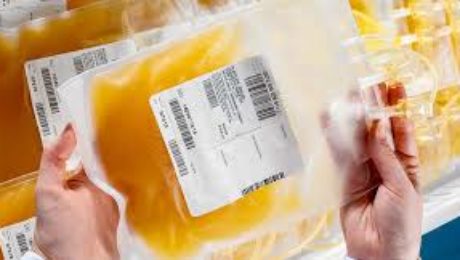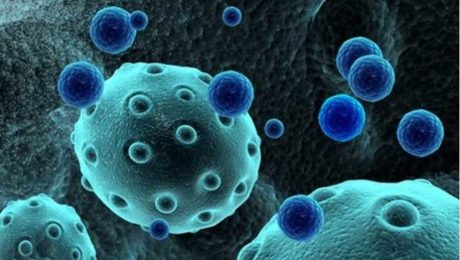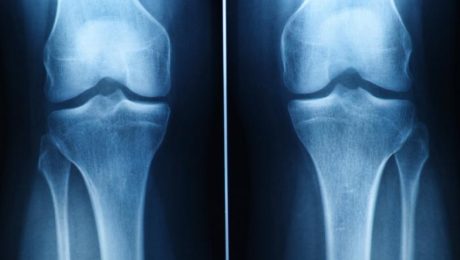Global Stem Cells Group has Announced an Agreement with Rokit Healthcare
Global Stem Cells Group announces an agreement with the South Korean biotechnology giant known as Rokit Healthcare to represent the company’s technology in the Latin American market.
The Global Stem Cells Group (GSCG) a world leader in Regenerative Medicine Technologies has signed an agreement with South Korean-based Rokit Healthcare, an esteemed bioprinter manufacturer that is committed to advancing the field of regenerative medicine and bettering the quality of life of people around the world.
The field of bioprinting is an extremely new one, but it shows great promise. Simply, it is the automated, computer aided deposition of bio-materials (which are cells, growth factors, and biocompatible polymers) for the manufacturing of functional human tissues or organs. Growth factors are harvested and used with a proprietary printing technology to create or regenerative damaged or diseased organs. Rokit Healthcare does this primarily through the proliferation of a machine that they dub an ‘organ regenerator’– it looks like a 3D printer, but instead of using plastics to create things, they use cells and materials that will be safe to implant within the human body.
The process of 3D bioprinting human tissues and organs is a revolutionary technology in the field of tissue engineering. One of the major challenges in regenerative medicine research and tissue engineering is mimicking the micro and macro environment of human tissues. In response to this challenge, advances in additive manufacturing have inspired scientists in Korea to develop novel bioprinting technology, for human tissues and organs
With the advancements of 3D printing and regenerative medicine working together, the potential is seemingly limitless for the spreading of bioprinting technology, a process that is known as 4D Printing– and Global Stem Cells Group, in an effort make this revolutionary technology available to patients, has forged an agreement with Rokit Healthcare to promote, and distribute the company’s technology in Latin America-
The Invivo 4D Printer is Rokit Healthcare’s flagship product, and it is one that revolutionizes the application of regenerative medicine and growth factor-based therapies. creating a solution for personalized and improved patient care. By leveraging a combination of 3D and bioprinting technologies, it can better distribute a patient’s autologous tissues and cells, making it an invaluable tool for those that are looking to improve the efficacy of their results, especially for certain dermatological conditions including scarring.
“We’re extremely excited about this new opportunity and look forward to working with Rokit,” Says Benito Novas, CEO of the Global Stem Cells Group, “The Invivo 4D Printer is in a position to turn the practice of regenerative medicine onto its head, and we are planning on creating a training center in Cancun, Mexico exclusively to showcase and instruct other physicians in this cutting-edge technology,”
About Global Stem Cells Group
Global Stem Cells Group (GSCG) is a worldwide network that combines seven major medical corporations, each focused on furthering scientific and technological advancements to lead cutting-edge stem cell development, treatments, and training. The united efforts of GSCG’s affiliate companies provide medical practitioners with a one-stop hub for regenerative medicine solutions that adhere to the highest medical standards.
About ROKIT :
ROKIT Healthcare is a global healthcare company that is committed to providing an effective and autologous organ regeneration platform. In order to undertake this daunting task, the company uses proprietary biofabrication technologies that show promise in treating several types of diseases in the field of regenerative medicine. Through the proliferation of 4D bioprinting technology, autologous stem cell technologies, ROKIT Healthcare believes that supplying an avenue for organ regeneration will drastically change the way that everyday people trust and manage their own body.
- Published in Press Releases
ISSCA Announces New Buenos Aires Symposium
The International Society of Stem Cell Applications (ISSCA) has hereby announced the date of it’s seventh Symposium of Regenerative Medicine. As before, the organization hopes to bring together a network of regenerative medicine practitioners from all over the world to foster a growth of knowledge among them. It will go over a wide range of topics related to regenerative medicine, chiefly among them will be the response of all levels of regenerative medicine research and practice in the COVID-19 pandemic, as well as what the future looks like for the field as a result of it. In addition to this, the symposium will also cover breakthroughs in the field, new treatment options and technological developments that are now available to both doctors and patients.
Cellular Therapies During and After the Pandemic
Cellular therapies have been an invaluable asset in managing the largest pandemic in modern history. This has been evidenced by the use of Mesenchymal cells, along with other growth factors and types of cells, to treat respiratory failure and manage some of the complications induced by exposure to COVID-19. This has resulted in accelerated pathways for regulatory approval and increased funding for new regenerative medicine-based clinical trials.
We are living in a unique time for regenerative medicine, as advancements are being made month after month, year after year at a rapid, exponential rate. Keeping track of the latest advancements in this research and development, and the medical protocols that occur as a result, is critical to safeguarding lives all over the world. Every medical society’s purpose is, primarily, to promote the growth of both their members and the field that they operate in. The International Society for Stem Cell Applications (ISSCA), strives to do just that. In the interest of designing the future of cellular therapies in a post-pandemic world, ISSCA invites pioneers of the field from around the world to form and share in a platform of experiences, knowledge, and progress.
Stem Cells Group to Host Regenerative Medicine Symposium in Buenos Aires, Argentina November 28th
After a period of silence brought about by the global COVID-19 pandemic, the Global Stem Cells Group (GSCG) is prepared to begin bringing medical professionals together by hosting a Regenerative Medicine Symposium in Buenos Aires, Argentina. The Symposium will take place at the Hotel Panamericano, Buenos Aires, on the 28th of November.
The Buenos Aires symposium will feature a wide variety of educational resources, including lectures and demonstrations, as well as product information. All of this is aimed at doctors that are looking to incorporate regenerative medicine into their practices. Industry experts will be on hand to impart the latest information on the newest compounds in the allogeneic stem cell market, including exosomes, amniotic fluid compounds, and umbilical cord blood products. Allogeneic compounds have steadily been increasing in popularity within the field of regenerative medicine, and this is due to their increased safety and treatment efficacy as research has evolved. With this in mind, GSCG representatives will be on hand to give physicians the opportunity to learn more about these popular treatment solutions and how they can be utilized in their own practices.
ISSCA CEO Benito Novas had this to say about the upcoming event: “We’ve barely even scratched the surface of potential for regenerative medicine, which is why it’s so important that we collectively gather and learn about what we’ve done thus far. This is a South
American congress that will witness some of the greatest regenerative doctors of our time
giving once-in-a-lifetime addresses to those in attendance.”
Among these speakers are Drs. Damian Siano, Silvina Pastrana, and Maritza Novas. Dr. Siano will look specifically at sports injuries, and draw on his experience as a sports medicine specialist aiding professional athletes in the world today. Dr. Pastrana, the Medical Director of the Buenos Aires Stem Cells Center, will speak about how stem cells can help to assuage aesthetic conditions. Dr. Novas, an ISSCA Fellow in Cell Therapy and Tissue Engineering, will look at the fundamentals of stem cell biology and their clinical applications. She will cover a broad range of topics concerning MSCs during their transition from bench-side to bedside.
In addition to the wide array of educational sessions offered, the Buenos Aires symposium will also provide a wide array networking and social opportunities for those physicians in attendance. To learn more about ISSCA’s upcoming Buenos Aires Symposium, or to register for the event, visit us at: https://www.issca.us/
About ISSCA
The International Society for Stem Cells Applications (ISSCA) is a multidisciplinary community of scientists and physicians, all of whom aspire to treat diseases and lessen human suffering through advances in science, technology, and the practice of regenerative medicine. Incorporated under the Republic of Korea as a non-profit entity, the ISSCA is focused on promoting excellence and standards in the field of regenerative medicine.
ISSCA bridges the gaps between scientists and practitioners in Regenerative Medicine.
Their code of ethics emphasizes principles of morals and ethical conducts.
At ISSCA, their vision is to take a leadership position in promoting excellence and setting standards in the regenerative medicine fields of publication, research, education, training, and certification. ISSCA serves its members through advancements made to the specialty of regenerative medicine. They aim to encourage more physicians to practice regenerative medicine and make it available to benefit patients both nationally and globally.
For more information, please visit https://www.issca.us/ or send an email to info@stemcellsgroup.com
- Published in Press Releases
GLOBAL STEM CELLS GROUP ANNOUNCES THE LAUNCH OF ITS NEW DIVISION “VITA NOVAS”
A Step towards the Actualization of Regenerative Medicine
The Global Stem Cells Group takes another luminary step by launching its new company VITA NOVAS in the field of Regenerative medicine. Vita Novas is a mobile IV infusion company that provides in-home treatments to patients in need of immune modulation to help fight infections, viruses, and diseases. Under the banner of GSCG, Vita Novas is ready to launch in 26 countries in the first year of its inception.
Having the cushion of an already established worldwide network and 10 years of experience of GSCG, VITA NOVAS has already gained ground with the inherited reputation of quality, innovation, and professionalism. The VITA NOVAS’ program delivers micronutrients and stimulating biological products like Exosomes and Mesenchymal Stem Cells intravenously, guaranteeing an effective way for the ingredients to become immediately available to the cells. This greatly decreases the time it takes for the medication or supplements to take effect. Patient-centred carved out packages The Shield, the Fighter, and the Lightening are delivered on-demand to homes, offices, or hotels administered by certified healthcare professionals.
Believing on the percept of Prevent-Protect-Thrive, VITA NOVAS aspires to set standards in the industry, and committed to ensure in-home, and personalized patient service; keeping them away from hospitals and emergencies. VITA NOVAS offers infusion packages, mixed with essential fluids, electrolytes, vitamins, and antioxidants as a powerful cocktail to stimulate the immune system and help bolster it to assist in fighting infections and diseases. In-line with the evolved life pattern of social distancing, the process of treatment at VITA NOVAS culminates as:
Select your Service Area
Schedule a video consultation with our local doctors to discuss your possible treatment plan
Receive the treatment at home
“We have combined elements of Tele-health with cellular therapy, IV wellness infusions, and a direct-to-consumer model intending to capitalize on the burgeoning market for medical services at the patient’s’ place of residence, due to convenience and social distancing practices,” explains Benito Novas , CEO of VITA NOVAS.
The secret behind the VITA NOVAS program is the provision of assistance and prime incentives to medical professionals. Once a physician joins the network, the company provides training and support that they will need in order to set-up run, and market their practices. They enjoy geography and specialization exclusively as well as a strong network of patients referrals, increased revenues, and conduct consultations from home.
Global Stem Cells Group, with golden track record and experience of a decade, is the parent company of six wholly owned operating companies dedicated entirely to stem cell research, training, products, and solutions. Founded in 2010 by Benito Novas, the company combines dedicated researchers, physicians, patient educators, and solution providers with the shared goal of meeting the growing worldwide need for leading-edge Regenerative Medicine treatments. Global Stem Cells Groups corporate mission is to make the promise of Regenerative medicine a reality for patients around the world. With each of GSCGs six operating companies focused on a separate research-based mission, the result is a global network of state-of-the-art regenerative technology, while adhering to the highest medical standards.
VITA NOVAS can help, to find your service area, please visit: www.vitanovas.net
To know more about the company , visit www.stemcellsgroup.com
- Published in Press Releases
ISSCA to Conduct First Hands On Regenerative Medicine Training after Global Pandemic
he COVID19 pandemic has brought about a ‘new normal’ of social-distancing, closed businesses and self-isolation. After several months of inactivity brought about by this virus and the period of self-isolation, the International Society for Stem Cell Application is ready to begin the process of resuming our schedule of training courses,
Florida (PRUnderground) May 19th, 2020
Now, more than ever, interest in the immune system and its health has breached our collective consciousness, both phycicians and scientist are turning to regenerative medicine as a way to strengthen it. Recent breakthroughs in the field have led to a newly devised program– one with a proprietary protocol for strengthening the immune system, furthering a person’s ability to fight and prevent disease.
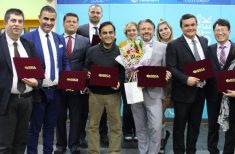
This inaugural training will take place in Washington over the course of two days, during which we will be training a group of five doctors in the latest regenerative medicine techniques. We will go over our traditional program providing physicians with all of the tools they will need to begin incorporating regenerative medicine into their own practice
The International Society for Stem Cell Application is an independent, non-profit organization whose objective is to become the gold standard of regenerative medicine. It accomplishes this through hosting conferences and specialized certification courses, publishing and sharing clinical research, and setting protocols in the field of regenerative medicine. Through this partnership, we are seeking to spread knowledge on the current applications of cellular therapies by building a platform for doctors to discuss and debate the newest advancements in the field. These conferences have been held in dozens of countries, and work to create a global network of regenerative medicine researchers and practitioners.
If you’d like to know more information about our program, or the courses that we offer around the world, please check out by visiting our website at: www.issca.us
About International Society for Stem Cells Applications
The International Society for Stem Cells Applications (ISSCA) is a multidisciplinary community of scientists and physicians, all of whom aspire to treat diseases and lessen human suffering through advances in science, technology, and the practice of regenerative medicine. Incorporated under the Republic of Korea as a non-profit entity, the ISSCA is focused on promoting excellence and standards in the field of regenerative medicine.
ISSCA bridges the gaps between scientists and practitioners in Regenerative Medicine. Their code of ethics emphasizes principles of morals and ethical conducts.
At ISSCA, their vision is to take a leadership position in promoting excellence and setting standards in the regenerative medicine fields of publication, research, education, training, and certification. ISSCA serves its members through advancements made to the specialty of regenerative medicine. They aim to encourage more physicians to practice regenerative
medicine and make it available to benefit patients both nationally and globally.
For more information, please visit https://www.issca.us/ or send an email to info@stemcellsgroup.com
- Published in Press Releases
GLOBAL STEM CELLS GROUP will host ISSCA Regenerative Medicine Training
After several months of silence due to the mandatory shutdown in place, the training division of Global Stem Cells Group –known as ISSCA Training– has officially announced the reopening of its regularly scheduled training dates Around the world
Miami, FL (PRUnderground) May 20th, 2020
“The future’s looking bright for our Regenerative MedicineTraining program, we’ve taken our course and updated it, reinforcing it with new information and quality protocols that’ll help doctors and their patients manage this ‘new normal’ as well as they can, and we’re very excited to be able to be bringing this new information to physicians around the world– but we’ve decided to start small for now, with the reinstatement of our headquarters’ operations,” — Benito Novas, CEO
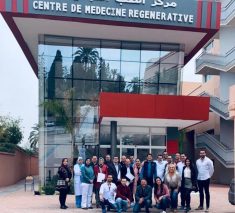
Because of the growing interest in the industry , ISSCA Regenerative MedicineTraining has updated its program with new protocols focused on the optimization of the body at the cellular level. Notably, their upcoming June course will also include live practice patients in the treatments of autologous cell therapy, which includes PRP, adipose-derived stem cells, bone-marrow derived stem cells, exosomes, Umbilical Cord Blood Cells, and other novel techniques.
Stem Cell Training is a company that seeks to instruct medical professionals around the world on regenerative medicine techniques. They do this by sharing breakthrough scientific research on stem cell therapy and treatment, as well as developing and offering courses, seminars, and workshops based on this research.
About the Global Stem Cells Group:
Global Stem Cells Group is the parent company of six wholly owned operating companies dedicated entirely to stem cell research, training, products and solutions. Founded in 2010, the company combines dedicated researchers, physicians ,patient educators and solution providers with the shared goal of meeting the growing worldwide need for leading edge Regenerative Medicine treatments.
With a singular focus on this exciting new area of medical research, Global Stem Cells Group and its subsidiaries are uniquely positioned to become global leaders in cellular medicine.
Global Stem Cells Groups corporate mission is to make the promise of Regenerative medicine a reality for patients around the world. With each of GSCGs six operating companies focused on a separate research-based mission, the result is a global network of state-of-the-art regenerative technology
- Published in Press Releases
Global Stem Cells Group Announces Launch of Vita Novas In-Home IV Infusion Service
Its no secret that a quality IV infusion can boost health and energy. Vita Novas makes this more simple than ever performing IV services than revitalize the body and help it regenerate, right at home.
Miami , Florida (PRUnderground) May 20th, 2020
The interest in boosting the immune system in a safe and effective way is a topic on more minds than ever. In exciting news, Global Stems Group has announced the launch of a new company, Vita Novas who make this both simple and dependable. Vita Novas offers an IV infusion packages are a mix of stem cells, essential fluids, electrolytes, vitamins and antioxidants as a preventive solution for having an optimal immune system. This IV infusion is delivered at home, in an office, or at a hotel, by certified healthcare professionals. With the global pandemic shutting doors of physicians for elective and health-enhancing non-vital procedures going to get IV treatments in most communities is difficult, if not impossible. Vita Novas is opening the doors for these life-enhancing treatments to be accesses in an easy and convenient way.
“The demand for preventive health services using IV infusion is greater than ever,” commented Benito Novas, CEO of the company. “What we are doing, by offering these at home and offices, is not just making things more convenient but also following social distancing requirements. Its truly making the right thing available at the right time and place.”
Vita Novas provides a teleconsultation with a Doctor to determine what meets a patient’s needs best. Three different vitamin and nutrient vitamin infusion packages are available.
The Lighting Package consists of two sessions of IV administration of vitamins (Vitamin C, B-Complex vitamins, and trace minerals), with a patient follow up recommending dietary changes and oral supplements to maintain good health.
The Shield Package is three sessions of IV administered (high dose Vitamin C, Methylcobalamin, Zinc sulphate, Glutathione and five billion flow exosomes). This has been shown have a powerful effect in regulating regenerative processes in the body and increase cell to cell communication. This has been used to treat COVID-19 patients with exciting results, something clearly at the front of people’s minds of all ages and lifestyles.
The Fighter Packages is the platinum offer from Vita Novas. This combines IV administration of high dose micronutrients (amino acids, glutathione), vitamins (B-Complex, methylcobalamin, Folic Acid, Vitamin C), and trace minerals (zinc, copper, magnesium) along with 30 million live stem cells in 5 sessions. This can modulate immunity and assist in the regeneration process of damaged or infected tissue in a very dramatic way.
Vita Novas is currently positioned to be able to launch the program in ten different countries with the number rising to over 25 within six months. The near and far future are bright for the company and its potentially life-changing services.
About the Global Stem Cells Group:
Global Stem Cells Group is the parent company of six wholly owned operating companies dedicated entirely to stem cell research, training, products and solutions. Founded in 2010, the company combines dedicated researchers, physicians ,patient educators and solution providers with the shared goal of meeting the growing worldwide need for leading edge Regenerative Medicine treatments.
With a singular focus on this exciting new area of medical research, Global Stem Cells Group and its subsidiaries are uniquely positioned to become global leaders in cellular medicine.
Global Stem Cells Groups corporate mission is to make the promise of Regenerative medicine a reality for patients around the world. With each of GSCGs six operating companies focused on a separate research-based mission, the result is a global network of state-of-the-art regenerative technology
- Published in Press Releases
What is Exosome therapy?
Exosomes are extracellular vesicles (that’s particles that release naturally from a cell that cannot replicate) that are responsible for certain genetic information, otherwise known as Exosomes cell to cell communication. They transport molecules that are essential regulators of intracellular information between close and distant cells.
Exosomes play a vital role in the communication and rejuvenation of all the cells in our body. Despite not being a cell, Exosome has proven to be quite important in maintaining a healthy cellular terrain.
Exosomes are typically made by growing stem cells in culture. Taking the media where they grow and then getting rid of the stem cells. Due to the small size of Exosomes, the media is then ultra-centrifuged to concentrate the exosomes.
Exosomes contain different molecular constituents of their cell origin; these include proteins and RNA. Meanwhile, the Exosomal proteins composition varies with the cell and tissue of the origin; most Exsomes contains an evolutionarily conserved common set of protein molecules.
HOW TO ISOLATE EXOSOME FROM CULTURE STEM?
Exosomes can be isolated from culture stem cell using the method Ultracentrifugation. Often combined with sucrose density gradients, they float the relatively low-density Exosomes from other microvesicles. Cells and larger particles are removed by sequentially increasing the centrifugal forces. These procedures can take up to 30hours and requires an ultracentrifuge, extensive training and specialized equipment.
This method provides highly enriched exosomes but requires specialized training and equipment.
Now, this is how Exosomes works:
Exosomes carry genetic information. Protein and messenger RNA, they can relay this information, letting cells know when to and how to react. This Exosomes cell-to-cell communication is possible due to its unique shape and content.
Exosomes from young stem cells rejuvenate the older cells and assist in calming an overreactive immune system or modulating it to respond in a coordinated and more effective fashion.
WHAT IS EXOSOME THERAPY?
Exosome therapy is one of the hottest areas of regenerative medicine treatment. Researchers have given us valuable insight into the practical functionality of exosomes. While stem cells are usually responsible for the rejuvenation of older cells, they may not be able to supply all the information needed. So supporting Exosome function could have a greater positive effect, by providing a new piece of information to enhance the healing process.
Exosome therapy is a minimally invasive procedure commonly used in orthopedic injuries, for anti-aging and some other degenerative diseases. Exosomes treatment contains growth factors, messenger RNA, micro RNA, cytokines and other biologically active molecules in conjunction with stem cell therapy to speed up healing benefit.
Exosome therapy can be injected into the affected area like in orthopedic injuries or given intravenously for anti-aging.
This Exosome injection is administered directly into the affected area, and the dosing for every patient varies, and there is no set protocol.
Exosomes treatment is gaining popularity recently, due to its ability to transfer molecules from one cell to another via membrane vesicle, therefore influencing the immune system, such as dendrite cells and B cells.
What is exosome therapy used for?
HAIR LOSS: Exosomes injection can be used to regrow hair loss due to its growth factor content. When injected, Exosome will trigger healing, cell stimulation and natural regeneration of these hair follicles. Exosome hair loss therapy is cutting-edge in hair restoration. According to research, there is a positive relationship between Exosomes and Hair loss. Exosomes are ideal for people with thinning hair, excessive shedding or hair loss proper. This is because Exosomes are regenerative cells that can heal, repair, stimulate and restore cells and tissues.
LYME DISEASE: Exosomes may help to regulate processes in the body, and may also be beneficial to patients with Lyme disease. Lyme disease is a very complex disease, which compromises the immune system. Many Lyme patients suffer from dysfunction of the mast cells, increasing their inflammatory response and metabolic function. Incorporating Exosomes treatment in their treatment regimen may help break the inflammatory response and provide the body with necessary cellular information to facilitate healing.
ARTHRITIS: Arthritis as we all know, is the joint inflammation resulting from an autoimmune disease. Although various types of treatment are available to alleviate symptoms, no known therapy has been confirmed effective in reversing the disease progression.
In the field of regenerative medicine today, with the discovery of extracellular microvesicles, especially exosomes, many researchers have been able to offer a more exciting alternative on this subject matter. Exosome arthritis therapy is believed to play a more substantial role in bone and cartilage remodeling.
In a nutshell, Exosomes provides enormous potential in the field of regenerative medicine. You can advance your understanding of Exosomes and its relationship with stem cell in this course. This is an online-course https://www.cellulartherapycourse.com/ where physicians and medical personnel can get insight and deep understanding of this novel science (Exosome).
- Published in Corporate News / Blog
How to boost your immune system to fight cancer?
The human immune system helps to protect the body against illness and infection caused by bacteria, viruses, fungi, and parasites. This process is achieved by a collection of reactions and responses made by the body to damage these infected cells. It is also called immune responses.
This immune system is very crucial in cancer patients to help fight cancer, it dictates this cancer as abnormal and destroys it, but this is not enough to rid of cancer altogether. In most cases, cancer will weaken this immune system because it will spread into the bone marrow that produces blood cells that fights against infections and cause the bone marrow to decrease in its blood cell production.
When this immune system is unable to recognize these cells as abnormal, cellular growth will occur, causing uncontrolled growth and division of cells, that will, in turn, lead to cancer.
Cancer has been a serious and sensitive talk for both patients and doctors. Being diagnosed with cancer is frightening and tormenting, but due to the latest treatment method, recovering from this disease is increasingly possible. Living with cancer often brings an initial psychological crisis, but surprisingly it does not only affect you but your family and others close to you.
Cancers, especially genetic cancer can’t be prevented, so it is essential to be proactive about your health. If you’re diagnosed with cancer, some individual lifestyles that will help improve your cancer care, which includes managing stress. Reducing your stress level can help you to maintain physical and mental stress; you can use relaxation techniques such as meditation and yoga. Getting enough sleep is also crucial for patients living with cancer; this will help improve their health, mood, and coping ability. Also, it is best the limit their exposure to toxins that can increase one’s risk of being exposed to other deadly diseases.
A healthy feeding habit is critically important and can help manage cancer side effects, improve health, and quick recovery. Some tips to help you develop a good and healthy feeding diet include:
- Consuming assorted types of vegetables in all your meals. Vegetables are essential and should not just be a side dish but the centerpiece of your meal.
- Consuming foods rich in fiber like grains, beans, peas, nuts, and seeds.
- Consuming less red meat, like pork, lamb, goat, and bison.
- The presence of probiotic and prebiotic foods helps to support a healthy gut. Probiotic foods include yogurt or other fermented vegetables, and prebiotic foods include raw or cooked onions, dandelion greens, and legumes.
- Avoid processed and canned foods
- Avoid foods high in calories and low in nutrients like fruit-flavored drinks, sodas, candies, and sweets.
- Lastly, cut down on the excessive intake of alcohol.
Some other routines can help improve cancer care like regular exercise. Regular exercise helps to control fatigue, muscle tension, and anxiety in those with cancer, and it is essential, especially during and after cancer treatment, so keep fit and avoid adding unnecessary weight.
CANCER TREATMENT
There are many cancer treatment options for different types of cancers. Cancer treatments depend on the type and how to advance it is. Some patients with cancer will only have one treatment option, while others will end up with a combination of more that one treatments technique depending on the type and stage of cancer.
Curing cancer is one of the significant challenges of the 21st century. However, few advances to tame the immune system are getting closer to a future where cancer can be a curable disease.
Although cancer treatment is dependent on the stage and type, we need a wide range of therapies that work on cellular level like NK cell and stem cell therapies, wide enough to cover the whole spectrum of cancer. Cancer therapies involving the immune system is believed to be a milestone for cancer treatment advances, and the development of multiple immune cells as a therapeutic tool.
Our knowledge of cancer has dramatically improved in recent years. And it seems increasingly evident that there has been a surge of new technologies, and these technologies could make a great impact on the way we treat cancer, taking us closer to finally curing this deadly disease.
One of these promising cancer treatment advances is the natural killer (NK) cell-based immunotherapy.
NK CELLS
Natural killer cells have emerged as the newest promising therapeutic approach to cancer. Our understanding of the biological processes that take place in cancer is increasing rapidly, leading to this new type of targeted treatment and therapeutic approach. It is hard to overstate the possible importance of NK cells in the future of cancer. Modern researches have shown that NK cells are a type of treatment that stimulates a persons’ immune system to fight cancer, and this may give room for a greater number of chances to beat cancer for good. NK cells are also known for their ability to target cancer stem cells making these cancer stem cells visible to the immune system.
NK cells was first identified in the 1970s as a unique lymphocyte subset that can recognize and kill abnormal cells without prior sensitization of specific tumor antigen, thus preventing the growth of many cancers. During the late 1980s, something was observed, and this was that NK cells could destroy a lymphoma cell line that had lost MHC class I surface molecules while the original MHC class I+ cells were resistant to lysis, which led to the formation of the “missing self-hypothesis” which states that NK cells can sense the absence of “self” MHC class-I molecule on target cells. In recent years, the hypothesis was confirmed by the inhibitory and activating NK cell receptors.
This discovery indicates that autologous cells are not killed by NK cells, thanks to an appropriate expression of all self-HLA alleles, do not kill an autologous cell. In contrast, a wide spec of cancer types can be killed due to the loss of HLA molecules and to the expression/overexpression of ligands for NK cell activating receptors.
Now, this is how NK therapy works
NK cells firsts recognize the tumor cells via stress or danger signals from their sensors.
Then, the Activated NK cells directly decimate the target tumor cells through at least four mechanisms. These mechanisms are cytoplasmic granule release, death receptor-induced apoptosis, effector molecule production, or ADCC.
Furthermore, NK cells act as regulatory cells when reciprocally interact with DCs to improve their antigen uptake and presentation. This action helps in facilitating the generation of antigen-specific CTL responses that is vital in dictating foreign invasion and tumor cells.
Also, by producing cytokines such as IFN-γ, activated NK cells induce CD8+ T cells to become CTLs. Activated NK cells can also help in the differentiation of CD4+ T cells toward a Th1 response and promote CTL differentiation. Cytokines produced by NK cells might even have the unique ability to regulate antitumor cells, making them more proactive.
Accordingly, The cytokine gene transfer approach induces NK cell proliferation, and this increases survival capacity. Further enhancing their activation and also making them more potent in malignant cell multiplication dictation.
The NK cell scientist has assured that by using NK cell lines, modifying genes such as IL-2, IL-12, IL-15, and stem cell factor (SCF). They have been demonstrated the ability of the NK to restore their cytotoxic capacity as well as increase their proliferative rate, survival ability, and in vivo antitumor activity. However, the specificity of NK cells is still limited, and studies are even passing through phases. The approach focuses on retargeting NK cells to tumor cells by gene transfer of chimeric tumor-antigen specific receptors.
NK therapy is promising research; it raises the prospect of “one-end-solution” to many different types of cancers across the Globe. If the studies and experiments work out pretty well, the NK cells will be able to increase the activity of CD4+, CD19, and other important disease-fighting cells of the body.
There is no doubt that this an unimaginable feat, both in advancing our basic knowledge about regenerative medicine and for the possibility of future cancer treatment advances.
- Published in Corporate News / Blog
Can Stem Cells treatment Regrow the knee cartilage?
Some people believe that stem cell does all of this but studies have shown that It’s unlikely only in a few unique cases. You can observe minimal growth a year after the patient took treatment, but this doesn’t mean replacement of the cartilage.
The cartilage has a reduced regenerative capacity, and current and present pharmacological medications only offer symptomatic pain relief. Osteoarthritis patients that respond poorly to conventional therapies are ultimately treated with surgical procedures to promote cartilage repair by implantation of artificial joint structures (arthroplasty) or total joint replacement (TJR). Surgery has been the last resort for serious cartilage problems.
In the last two decades, stem cells derived from various tissues with varying differentiation and tissue regeneration potential have been used for the treatment of osteoarthritis, damage to bones and others either alone or in combination with natural or synthetic scaffolds. The stem cells derived from these tissues primarily aid cartilage repair. Although stem cells can be differentiated into chondrocytes in vitro or aid cartilage regeneration in vivo, their potential for Osteoarthritis management remains limited as cartilage regenerated by stem cells fails to fully recapitulate the structural and biomechanical properties of the native tissue. It isn’t easy for the cartilage to regrow and assume its original biomechanical and structure form.
Apparently, Due to the limited intrinsic capacity of resident chondrocytes to regrow the lost cartilage post-injury, stem cell-based therapies have been proposed as a novel therapeutic approach for cartilage repair.
Also, stem cell-based therapies using mesenchyme stem cells (MSCs) or induced pluripotent stem cells (iPSCs) have been used successfully in clinical and preclinical situations.
Part of the issues associated with Mesenchyme stem cells can be averted by using iPSCs. iPSCs are an ideal patient-specific unlimited cell source for autologous tissue regeneration. With the Promising in vitro; studies have shown that vitro results have already been demonstrated in the cartilage engineering field for iPSCs. These were generated from various cell types.
What Is Cartilage and How Does It Get Damaged?
Cartilage is a connective tissue in the human body and body of other animals. In our joints, we have a few kinds of cartilage, but most often people refer to the smooth lining of a joint called articular or hyaline cartilage. This kind of cartilage gives rise to a soft layer of cushion on the end of a bone at the joint. The cushion is essential for balance, mechanical functions and athletics. This tissue of the cartilage is very strong, yet it can compress, readjust and absorb varying degrees of energy. It is also very slippery, smooth and flexible and these features allow the joint to glide effortlessly through a broad range of physical motions of any kind.
When joint cartilage is not working correctly or damaged, this smooth-cushioning-layer can be worn away, and this becomes a problem. In the case of traumatic injuries, sometimes a sudden force causes the cartilage to break off or poorly become damaged, exposing the underlying bone of the body. In the case of osteoarthritis (also called degenerative/wear-and-tear arthritis), over time that smooth layer can wear thin and uneven. Aging can also cause the cartilage to break off and certain life factors and diseases too, e.g. autoimmune diseases.
Eventually, as that cushion of the bones wears away, joint movements can become inflexible, stiff and painful on one or both legs (bones). Joints can even become inflamed and swollen. And as all these conditions, typically causes pain and limitations in activity become problematic. The action or activities that involve these bones leads to crushing pain and discomfort, depending on the severity of the case. Almost all activities involve the movement of bones; hence this condition is not an easy one.
There are some treatments for cartilage damage and arthritis. Although there some medicines, most of these treatments are focused either on relieving symptoms by smoothing down the damaged cartilage or concentrate on replacing the joint surface with an artificial implant. The later is for end-stage conditions, and the artificial plane is procedures such as knee replacement or hip replacement surgery.
How Can Stem Cells Help?
Stem cells are specialized cells that can multiply reform and develop into different types of tissue. In the developmental stages of a fetus, stem cells are plentiful and surplus. However, in adulthood, stem cells are restricted to specific tasks of regenerating a few types of cells, such as blood cells and liver cells in some cases of damage. There are almost no stem cells found in cartilage tissue, and therefore there is little to no capacity to heal or regrow new cartilage. For adults, the ability to regrow new cartilage is even more difficult due to age and lack of stem cells in the cartilages.
Most often, in the setting of orthopedic surgery and joint problems, stem cells are obtained from adult stem cell sources. The primary sources are bone marrow and fatty tissue. These stem cells can develop into cartilage cells, called chondrocytes.
They also exhibit some other helpful qualities by stimulating the body to reduce inflammation, stimulate cell repair, and improve blood flow. This process is caused by the secretion of cellular signals and growth factors to stimulate the body to initiate healing processes.
Once stem cells have been obtained, they need to be delivered to the area of the cartilage that damaged. One option is to inject the stem cells into the joint. There have been many studies investigating just this, and some data shows improvement in symptoms. How much of this improvement is the result of new cartilage growth versus other effects of stem cells (the healing properties listed above, including the anti-inflammatory effects) is unknown.
There is a challenge with giving stem cell injection. The problem with just injecting stem cells is that cartilage is a complex tissue that is comprised of more than only cells hence this can pose a challenge because the stem can’t regenerate all the things in the cartilage.
To regrow the cartilage, the complex tissue structure and biomechanics of cartilage must also be reconstructed to its former status. Cartilage can often /described as having a scaffold-like structure that is composed of water, cells, collagen, and proteoglycans, and infection-fighting antibodies. Injecting just the stem cells is thought to be less effective in stimulating the formation of the entire cartilage structure hence the challenge.
Some studies are investigating the types of 3-dimensional tissue scaffolds engineered to have a cartilage-like structure. The stem can then be injected into the scaffold, in hopes of better restoring a healthy type of cartilage. Three-dimensional printing is becoming an exciting part of this type of research. If everything works out as expected, the cartilage reconstruction could be achieved to a very high percentage.
How do stem cells work?
Necessarily, stem cells are progenitor cells which are capable of regeneration and differentiation into a wide range of specialized cell types. Once injected, stem cells follow inflammatory signals from damaged tissues and have multiple ways of repairing these damaged areas. It works as though the part is developing new; like what is seen during a child’s development.
The mesenchyme stem cells (MSCs) we are using are considered to be multipotent (they can transform into different cell types but cannot form an organ) but not pluripotent. In the body, these cells Do NOT function by transforming into different cell types or tissues.
They act via anti-inflammatory activity, immune modulating capacity, and the ability to stimulate regeneration. We go through a very high thorough screening process to find cells that we know have the best anti-inflammatory activity, the best immune modulating capacity, and the best ability to stimulate regeneration process on the tissue with damage.
ISSCA (International Society for Stem Cells Applications) www.issca.us
This is a business located in Miami, FL, where people around the world come to take a certification in the newest Stem Cells Protocols.
Some organizations have put in efforts to help discover some solutions in stem medicine. International Society for Stem Cell Application (ISSCA ) is one of the leading associations in setting standards and promoting excellence in the field of Regenerative Medicine, researches, publications related education, certification, research and publications.
The ISSCA is a unique-multidisciplinary community of physicians, stem specialist and scientists with a mission to advance the science, technology and practice of Regenerative Medicine. Their aim is to treat disease and lessen human suffering. ISSCA generally advances the specialty of Regenerative Medicine and serves its members.
The ISSCA provides certifications and standards in the practice of Regenerative Medicine as a medical specialty.
Although the expectation on this stem cell course is yet to be achieved; however, this is a part of medicine that can offer one-end-solution to various bone and body problems.
With the recent high-tech studies, efforts and dynamics, stem cell treatment can be a breakthrough in the future as its perspectives are very promising and unique. It is also not dangerous on the long-run.
- Published in Corporate News / Blog

